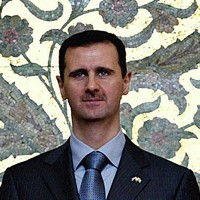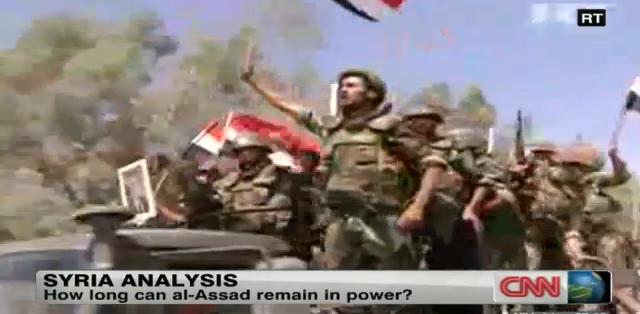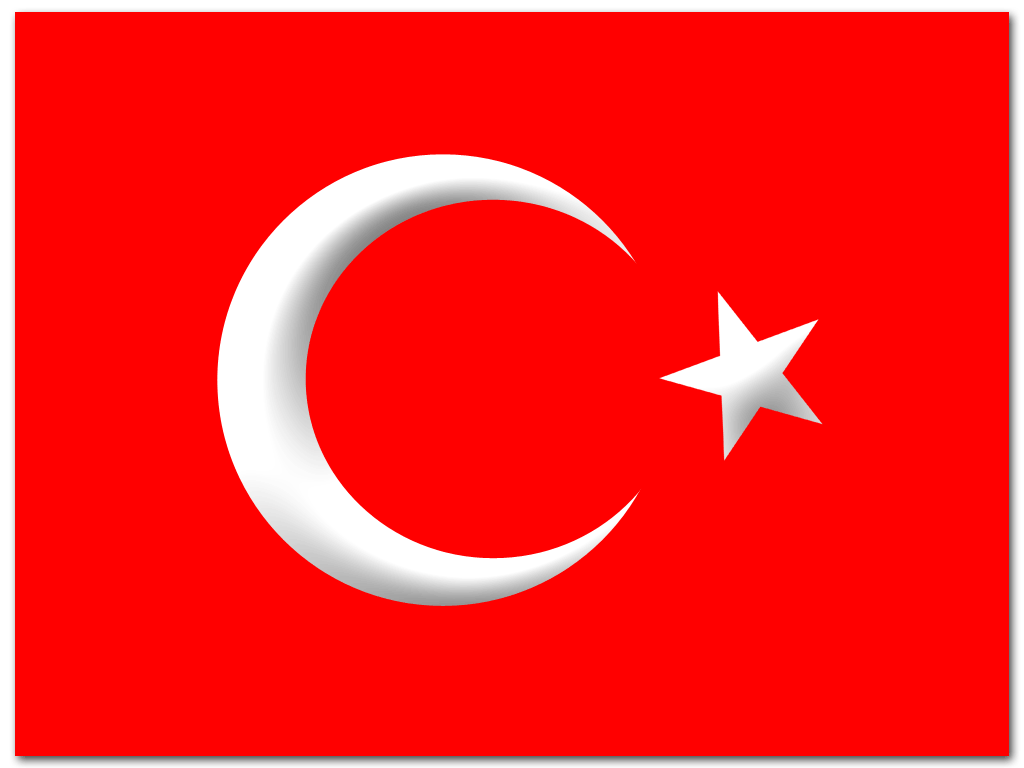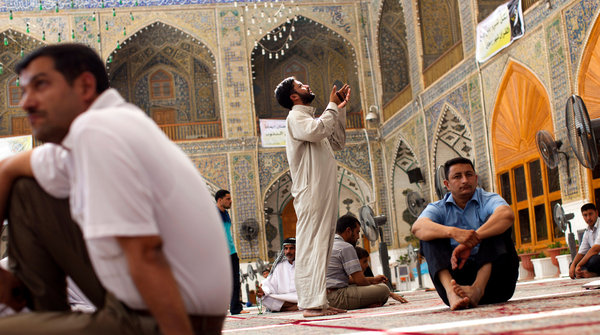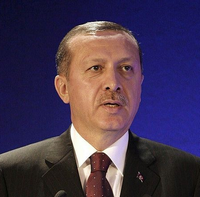What Does Russia/Putin Seek?
 Tuesday, August 30, 2016 at 9:47PM
Tuesday, August 30, 2016 at 9:47PM 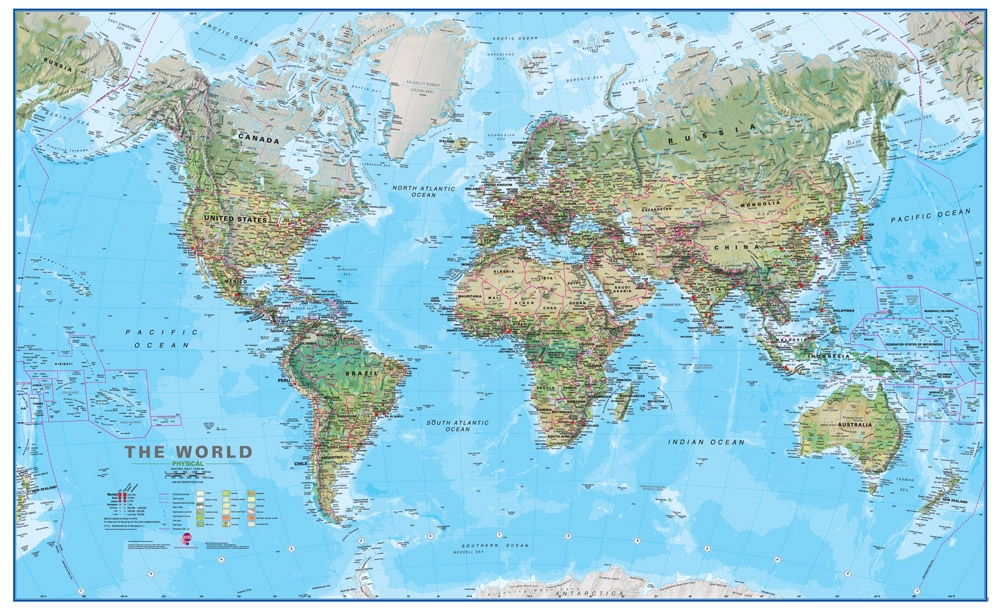 Putin's Russia is becoming the Trump of international security: dominating the news cycle with a constant stream of bold moves (Syria, for example) and often outrageous affronts (Russian hackers just did what?!?!). Just like Clinton will win the White House while The Donald is named Time's Person of the Year (bet on it), Obama's "long game" (see Chollet's new book) may be sound, even as it's seemingly trumped (that word again) on every strategic front by Putin's nonstop shenanigans.
Putin's Russia is becoming the Trump of international security: dominating the news cycle with a constant stream of bold moves (Syria, for example) and often outrageous affronts (Russian hackers just did what?!?!). Just like Clinton will win the White House while The Donald is named Time's Person of the Year (bet on it), Obama's "long game" (see Chollet's new book) may be sound, even as it's seemingly trumped (that word again) on every strategic front by Putin's nonstop shenanigans.
So what does Putin seek for Russia?
The obvious answer is: as much reconstruction of the old Soviet empire (however virtually achieved by various Finlandizations) as possible, combining that sometimes actual revanchism with a successful dismemberment of the EU and NATO, leaving Germany once again living in complete fear of its intentions (Russia has ALWAYS been just that into Germany).
Not by a long shot does that constitute an attempted overturning of the world order. It is far better described as a leapfrogging by a resurgent Russia over the faltering "West" (retreating US, freaking-out Europe, aging Japan [where adult-diaper sales now trump baby-diaper sales]) into the Trumpian position of Initiator-in-Chief (a role once clearly held - and abused - by the Bush Administration but clearly abandoned by Lead-From-Behind Obama).
So what does Putin seek for Russia? He wants Russia to be #1 on everybody's speed dial, search engine, and worry list.
And he's readily achieving it.
That's the thing about an essentially US-constructed (and typically led) world order: when we step back to stare at the horizon, others will step in. Ultimately those others will be China and India, but neither is ready for that now. India hasn't hit its demographic/industrialization inflection point yet and China is too obsessed with its front-yard "pond" (their strategic equivalent of staring at one's bellybutton and muttering, Mine! All mine!).
So we get Russia, Iran, Saudi Arabia, and Turkey running the show in the Center (see map above), while America focuses more on home (and the West Hemisphere) and China looks to lock down the East.
In my old vernacular, the "Gap-shrinking" continues, it is just more obviously and geographically divvied up, with Asian great powers (China, India, Japan) nonetheless forced into some competitive thrusts into the Center (particularly Africa) for reasons both immediate (resource access) and long term (tomorrow's biggest cheap-labor - and consumer - pool).
America, secure in both its energy and food/water (and increasingly Latinized and Millennialized), continues to turn inward for a lengthy Progressive Era that it desperately needs.
Still, we have to play both the Home and Away games, and here is where it gets particularly challenging for the West: imagine Hillary, May (UK), and Merkel (Germany( leading the West's pushback against Putin's many international micro-aggressions. You just know that that macho Vlad will assume he's got the upper hand. One can almost see the misogynystic cartoon: Vlad, in wife-beater shirt, daring the cowering women to take in the "gun show" (hat tip, Ron Burgundy) as he holds his backhand above his head, poised in bitch-slap-delivery mode.
So yes, expect Vlad to keep pushing things until the West (and specifically America) pushes back, and expect him to continuously elevate his game with little fear of long-term cost.
Putin has seen enough of Obama's "long game" (where America often punted on early downs) to know that, absent a serious course change, the Center field (Europe-writ large, Muddle East, Africa) is his for the reshaping right now (much as Xi Jinping views the East).
This is why any President-Elect Clinton needs to move fast and project an image of a serious housecleaning both internally and - eventually abroad.
But again, none of this signals an existential threat to the system, because, quite frankly, all our great power competitors (not enemies) find it all too much to their liking.
Was this phase of globalization inevitable?
Yes. Nothing moves ever upward in a straight line. It's more Dora's bit about just keep swimming.
America built something so amazing, transformative, beneficial, and enriching that there was zero chance we could control globalization ad nauseum - anymore than we could rule the Internet forever.
Remember: globalization comes with rules but no ruler (a wise man once wrote that).
A dozen years ago I penned a piece for WAPO stating that America's prime partners of tomorrow would be China, Russia, and India (Turkey also mentioned), and that, yes, we'd end up uncomfortably accommodating each in that pathway. [I soon after added Iran to that group.] My goal in that piece was simply to signal that the days of America, Europe and Japan constituting a quorum of great powers was over.
At that time, the notion was laughed off.
Not so funny now, is it? I mean, look who's running the Middle East? China and India are the biggest buyers, while Turkey, Iran, and Russia have all ascended as security actors. I never said we'd be close with any of them, just that we'd have to work with all of them.
Having said all this (again), we need to avoid our usual freak-out response pattern regarding all these powers. Yes, America enjoyed and exploited its post-Cold War unipolar moment to ram globalization down everyone's throats (I approved whole-heartedly), triggering the best set of problems the world has ever known. But that thrust, while an amazing gift to humanity (all that wealth creation, hundreds of millions lifted out of poverty, percentage of extreme poverty less than 10% of human population for first time in history, and a majority global middle class for the first time in history) was unsustainable for the US (or, more accurately, the US consumer and all the personal debt we took one).
Now we move dumbfoundedly into the period where the world's most dynamic great powers seek to consolidate rule-set spheres of influence ("This is how things work around here!"). This period was always inevitable, but keep in mind that we are not looking at the resurrection of great power war (no matter how many hard-talking security types sell you that every night on the news). MAD remains in force with no "offset" required.
What we face now is an extended clash not of civilizations but of great-power rule-sets.
What should America do?
We should persistently and pointedly defend our national interests while not pushing our norms as the only acceptable answer. We tend toward the opposite tack - a habit long ingrained by our "global cop" burden. But that burden has been overtaken by events and developments that we have long sought - a genuine multi-polarity that respects the international structure we've created even as each great power seeks to rule its individual roost (to expect otherwise is naive in the worst way).
So we should stay calm and carry on with our necessarily transformative regrading of our political (less distance between leaders and led) and economic (less tilted toward rich) landscapes. In short, we need to proceed with the next great progressive American era that redefines 21st century capitalism in light of globalization's swift conquering of the planet - finally (with a hat tip to K. Marx) but only under America's tutelage (none of those thieving European empires came even close).
Again, these are the best problems humanity has ever faced - problems of success and not failure.
So, chin up as this US election gets even nastier and more weird - and as daily revelations emerge concerning Moscow's (or Beijing's or Tehran's or Ankara's) latest transgression.
The world system we built remains secure, even as virtually every state now faces very hard choices between open and closed, connected or disconnected, or drawbridges up or down (per the Economist). These are natural reactions and we were all certain to confront these as a result of the Great Recession. What matters now is what we as Americans choose and how we lead - as always - by example.
Make no mistake: I'd gladly take our path and our fundamentals and our challenges over those of any other great power out there - yet another reason to keep all such frenemies in perspective. Neither they nor our true enemies (violent extremist organizations, plus those just-plain-nutty North Koreans) pose any existential threat to either us or our amazingly sturdy world order.
Simply put, don't believe the hype, even as we keep an eye on Russia's Trump.
 China,
China,  India,
India,  Iran,
Iran,  Russia,
Russia,  Turkey,
Turkey,  US,
US,  grand strategy | in
grand strategy | in  What's Tom Up To? |
What's Tom Up To? |  Email Article |
Email Article |  Permalink |
Permalink |  Print Article
Print Article 












